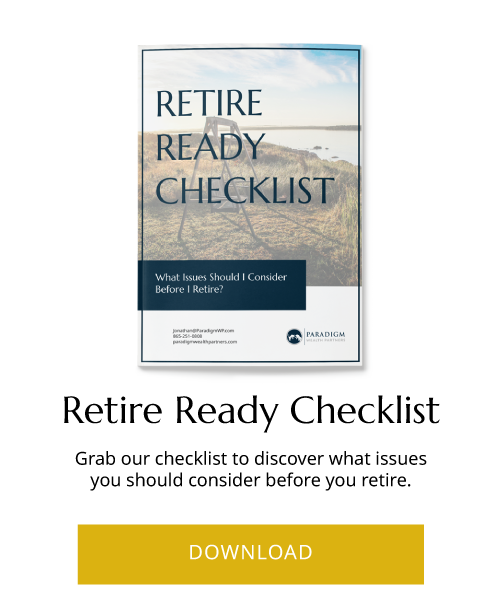It is common for people to put off planning their estates. After all, no one wants to anticipate his or her own death. In addition, many people may believe that only the wealthy require estate planning or that all that is involved is tax planning, which can be done “later.” They may well be wrong on both counts.
Your level of wealth and the ultimate tax consequences of your estate become secondary to the planning and care of your family and other heirs.
A well-structured estate plan can be invaluable. Through it you can control the distribution of your assets and possessions, as well as name guardians for your children or plan care for other dependents. While the estate planning process can raise some difficult emotional and personal issues, your heirs will be glad you did it, and you will know that your wishes are assured.
How to Begin?
Your first step should be to assemble a competent, professional estate planning team. Your attorney, financial professional, insurance agent, bank trust officer, and/or accountant are all possible members of your team, depending on the size and complexity of your estate.
They can help you complete an analysis of your current estate by looking at your financial position as of today and helping you analyze your family’s needs for the future. Does a family member have special needs or require medical attention? How much will an education cost when your children reach college age? How will your family’s overall cost-of-living requirements change? How will estate taxes affect your assets as they are currently held? The answers to these questions can help you develop an estate plan that will adequately provide for your family’s needs.
What Information Should Be Gathered?
A thorough estate analysis requires gathering any and all materials involving current or future income, property ownership, insurance, and legal arrangements already in place. This includes records of the following:
- Current income from employment and all investments
- Any expected deferred compensation
- All retirement benefits, from Social Security (including survivors’ benefits), IRAs, pensions, and profit-sharing plans
- Investment documents, certificates, passbooks, etc.
- Deeds to primary and vacation residences
- Personal property
- Life insurance policies of which you are the owner, the insured, or the beneficiary
- Trust agreements, if any
- Your will, if you have one
Current and expected debts and obligations, including mortgage and loan balances, real estate
liens, taxes payable, consumer debts, and estimates of funeral costs and estate settlement expenses
Once assembled, a complete analysis can begin, giving you the basis for a comprehensive estate plan.
Steps to Estate Preservation
If you begin planning in a timely fashion, there are methods that may allow you to take steps to preserve your estate and minimize estate taxation while satisfying both the Internal Revenue Service (IRS) and the courts. You can also potentially save your heirs needless effort and expense. Consider the following steps:
- Use Your Applicable Exclusion Amount to the Fullest. Current law, as revised by the Economic Growth and Tax Relief Reconciliation Act of 2001 (EGTRRA), allows for the exclusion of up to $2,000,000 in estate assets from taxation per person in 2007. When used properly in an estate plan, the applicable exclusion amount can help protect many estates from all estate taxation. EGTRRA increases the applicable exclusion amount incrementally, until it reaches $3.5 million in the year 2009 and its eventual repeal in 2010. EGTRRA is scheduled to “sunset” on December 31, 2010, unless Congress takes action.
- Plan a Gifting Program. Further tax shielding is gained through use of the annual $12,000 gift exclusion, which is indexed annually for inflation. This allows gifting (in the year 2007) of up to $12,000 each, to any number of donees annually without payment of gift tax. (When a spouse is involved in the gifting program, the annual exclusion will increase up to $24,000 per donee, indexed for inflation.) Provision must be made for the immediate use of the gift by the donee; gifts of future interest will not qualify. Professional assistance and careful structuring of your gifting program are, therefore, essential.
- Draft a Will. A will is a formal, legal document instructing your survivors in the settlement of your estate. It is crucial to the success of an estate plan that your will be properly written by a qualified, experienced legal professional and witnessed simultaneously by two parties.
- Establish Trusts. Utilizing trusts can be an excellent method of accomplishing long-term estate planning goals. Trusts, while seemingly complex, are simply very powerful tools designed to help individuals handle a variety of family and tax-related problems.
- Plan Your Charitable Bequests. The value of all property transferred for “charitable” or “public” purposes is deductible, with certain limitations, when determining valuation of an estate for tax purposes.
- Utilize Life Insurance to Its Fullest Advantage. Life insurance can fulfill two important functions in your estate planning. First and foremost, it can provide for the immediate cash needs of your spouse or other beneficiaries. Second, and of equal importance, the use of an irrevocable life insurance trust (ILIT) can prevent inclusion of your life insurance proceeds in your estate and help your executor pay your estate tax bill without having to sell estate assets.
- Title Assets Properly. The simplest and least expensive estate planning technique for married couples is to take title to assets as “joint tenants.” This will exclude assets from probate and may eventually save legal costs.
[Note: Residents of community property states should remember that all income and assets acquired by a married couple living in those states, except for individual gifts and inheritances, are considered community property, half of which is included in each spouse’s estate valuation.]
Always Remember: You Can’t Take It With You
The careful planning of an estate can require a great deal of expertise. If you surround yourself with a professional, supportive team as you begin the process, work through its many stages and adjust your plans over time, you can prepare yourself—and those you love—for the future.
EPGB023-X
Important Disclosures
The opinions voiced in this material are for general information only and are not intended to provide specific advice or recommendations for any individual.
This information is not intended to be a substitute for specific individualized tax or legal advice. We suggest that you discuss your specific situation with a qualified tax or legal advisor.
Wanting more advice? Read more of our blogs here.
______________________
LPL Financial Representatives offer access to Trust Services through The Private Trust Company N.A., an affiliate of LPL Financial.
This article was prepared by Liberty Publishing, Inc.
LPL Tracking #1-05180353



